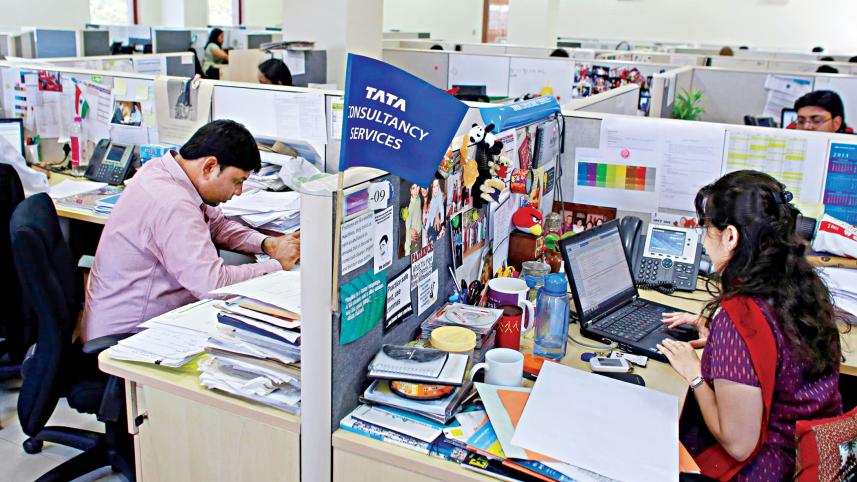H-1B visa war will accelerate AI jobs reckoning

What helps make some American companies exceptional is that they're able to hire the best talent in the world. Donald Trump's decision to slap a $100,000 fee on new applications for H-1B visas - used to bring highly skilled and talented workers into the country to work for Amazon.com, Microsoft, Meta Platforms, Apple and others - poses a risk to that equation. But the US president has allowed himself enough loopholes to avoid such an adverse outcome.
The war on H-1B visas front in Washington's anti-immigration push, but it is not a jolt from the blue. For years, Indian IT outsourcing companies operating in the US have in particular come under fire for using the visas to hire lower-paid foreign technology engineers instead of hiring Americans. That has started to change, though. Tata Consultancy Services, the second-largest user of the program this year, has 5,505 employees on the visas, half its 2021 peak. Yet while Indian nationals hold 71 percent of H-1Bs, US companies dominate the top 10 sponsors.
The short-term financial impact will be limited, especially after the White House hastily clarified over the weekend that the fee only applies to new applications, not existing visas. Even if it were retroactive, the upfront cost for JPMorgan, for example, would be equivalent to 0.4 percent of its full-year profit. Spread the cost over three to five years of an employee's term, and the $100,000 fee is a tolerable cost for hiring the best and brightest. For TCS, it would be up to 10 percent.
In practice, companies are likely to respond to Trump's order in two main ways. First, they will double down on offshoring work, where possible. Absent any move by Washington to tax outsourcing payments, India, the Philippines and Mexico could be top potential beneficiaries. Though companies need a minimum mass of talent in close proximity to their projects to execute them smoothly, there was a massive trend toward offshoring during the COVID-19 pandemic which busted myths about where people need to be to perform certain tasks.
Second, companies will aggressively pull forward their adoption of artificial intelligence to optimise their workforce requirements. If a company was using 10 people with H-1B visas on a project, they might hire five and use the latest innovations in AI to see if they can make up for the lack of availability of talent. That would be the opposite outcome to Washington's intention to prod employers to hire American science, technology, engineering and mathematics graduates to tackle domestic unemployment among this cohort.
So the pushback from Tech shareholders would be like, why are you just handing over this company without a premium when it's a lot cheaper?
Trump has taken different sides on H-1B visas over the years, siding at times with his tech advisers or with his Make American Great Again political champions. His own uncertainty may explain why the president's order contains plenty of loopholes. He has allowed the secretary of the Department of Homeland Security to grant fee exemptions if it is in the national interest, and the restrictions only apply for 12 months, unless the programme is extended.
But the overarching threat remains. America has always relied on a mixture of local and overseas talent and will pay a heavy price if the anti-immigration push becomes permanent.
US President Donald Trump signed an executive order on September 19 that will impose a $100,000 fee on applications for H-1B visas to bring specialist skilled workers into the country. The restriction, absent an extension, will expire in 12 months. The order also gives the secretary of the Department of Homeland Security the right to grant exemptions to the fee if they are in the national interest.



 For all latest news, follow The Daily Star's Google News channel.
For all latest news, follow The Daily Star's Google News channel.